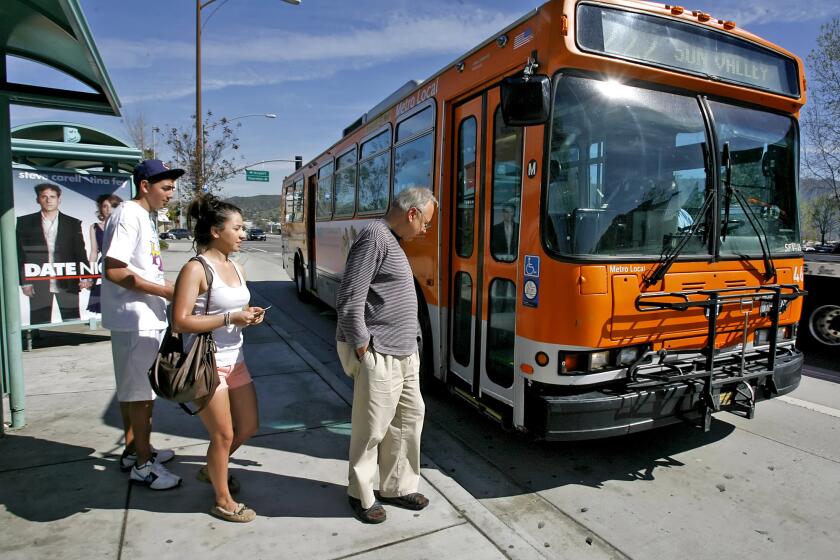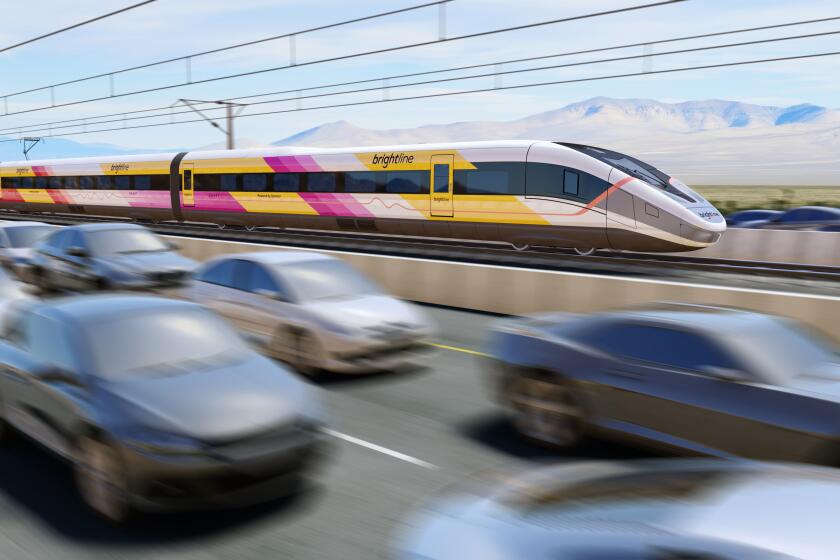PERSPECTIVE ON AIRLINE DEREGULATION : ‘Successful’ Reform? Horrid Results : Deregulation isn’t to blame for sick and dying U.S. carriers, says Sam Skinner--it’s labor costs. But is he ever wrong.
The death of Eastern Air Lines, the bankruptcy of Pan Am, Midway, and Continental and the partial liquidation of TWA has left the U.S. Department of Transportation dazed and confused. In recent speeches and congressional testimony, Secretary of Transportation Samuel K. Skinner has repeatedly made three curious observations:
-- Deregulation is not the cause of the industry’s ills.
-- Labor costs are the cause of the industry’s problems.
-- Foreign ownership is the cure.
Skinner not only insists that deregulation is not to blame, he tells us that deregulation is a profound success and proclaims the deregulation debate over. Nothing as lovely as deregulation could have produced anything as horrid as unprecedented concentration; wildly fluctuating and discriminatory prices; circuitous “hub-and-choke” systems that rob business travelers of billions of dollars in wasted time and squander American productivity, or a collapsing transportation infrastructure.
Skinner needs to look again. Aviation fuel costs soared 300% during the 1970s, and the industry was plagued by recession then as well; but not a single airline folded, entered bankruptcy or liquidated operating assets. Then, of course, the industry was regulated; today it is not.
Today aviation fuel is cheaper than before Saddam Hussein invaded Kuwait. While fuel costs rose significantly during the crisis, they were nonetheless lower in actual and real terms during 1990 than they were a decade ago. Yet today, five airlines are in some stage of liquidation.
Deregulation caused a blood bath of ruinous competition, spilling red ink on the Tarmac. Excessive debt produced 150 bankruptcies and 50 mergers during deregulation’s first decade. The Department of Transportation never met a merger it didn’t like.
Deregulation also freed corporate raiders like Carl Icahn and Frank Lorenzo to raid and loot airlines of assets. Debt service is now crushing the operating profits of the disintegrating airlines.
The economic anemia unleashed by deregulation forced airlines to defer new equipment purchases. Sadly, U.S. airlines today fly the oldest fleet of aircraft in the developed world. The geriatric jets burn more fuel. They are also less safe.
Deregulation created the fuel-guzzling hub-and-spoke phenomenon, which requires flying passengers more miles, with more takeoffs and landings, and creating more airway congestion than before. Flying older jets more miles necessarily consumes more fuel. So when fuel costs rise even modestly, as they did during the Persian Gulf crisis, the profit margin disappears.
Skinner is therefore wrong. Deregulation is the major cause of the industry’s disintegration and unprecedented concentration. The same is true of the savings-and-loan industry and the trucking and bus industries.
Skinner also says that labor costs are a major cause of the industry’s problems. But look at the dying airlines: Continental has the lowest labor costs of any major airline. Before its demise, Eastern had the second lowest. Midway has among the lowest. Yet all three are wounded birds--sick, dying or dead.
Look at the healthiest airlines, the ones that most analysts agree will survive the Darwinian struggle of deregulation--Delta, American and United. Delta has the highest labor costs in the industry. American and United are not far behind.
Skinner also insists that foreign ownership is the cure, announcing that foreign airlines will be allowed to own up to 50% of U.S. carriers, no matter what the law says. No matter that competition will be diminished or that national security will be threatened.
KLM now owns 49% of Northwest. Both airlines serve Amsterdam and Minneapolis (their respective hubs), as well as interior European and U.S. cities. How can we expect vigorous competition between an airline and its owner? We didn’t see it between Continental and Eastern once Frank Lorenzo’s Texas Air subdued both.
Moreover, most foreign airlines are owned or subsidized by their governments. Monopoly is not the antithesis of competition; socialism is. The government bailout of the airline industry that Skinner proposes is a bailout by foreign governments. We are selling monopoly access to our publicly owned trillion-dollar airport and airway system to foreign governments.
Foreign alliances are always shifting. We embraced Stalin to destroy Hitler, and Syria’s Hafez Assad to fight Saddam Hussein. In the recent Persian Gulf crisis, we relied upon our domestic civil-reserve aviation fleet to ferry 60% of the soldiers and 23% of the supplies to the battlefield. Yet Skinner would have foreign governments sit on the boards of directors of U.S. airlines.
After the disappointing tenures of Elizabeth Dole and James H. Burnley IV at the helm of the Department of Transportation, Sam Skinner was welcomed by many as a breath of fresh air. I was among them.
At first, Skinner sounded like a serious, conscientious public servant. Now he sounds like the lapdog of the airline industry. That’s not what America needs to set public policy in an industry vitally important to commerce, communications and the national defense.
Rumor has it that White House lieutenant John H. Sununu is calling the shots on regulatory policy. If so, it is time to extricate the regulatory responsibilities over safety, economics and foreign policy from the Department of Transportation and place them in a newly created independent agency, shielded from the political winds that blow down Pennsylvania Avenue.






